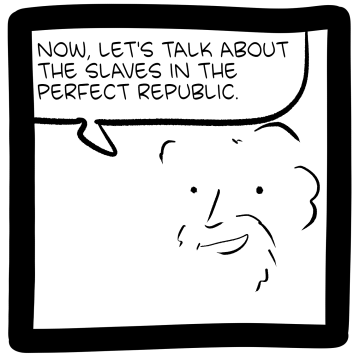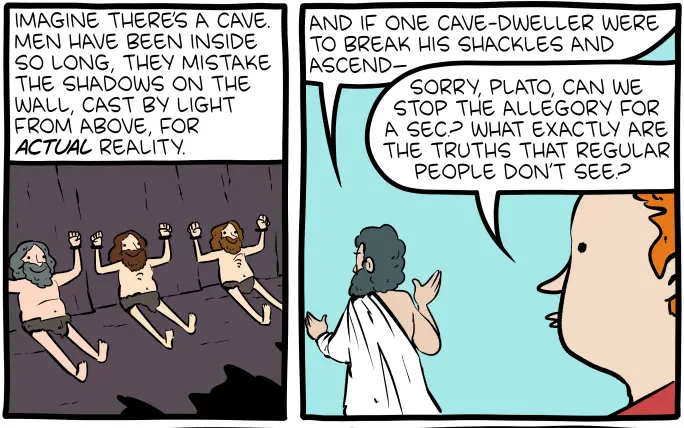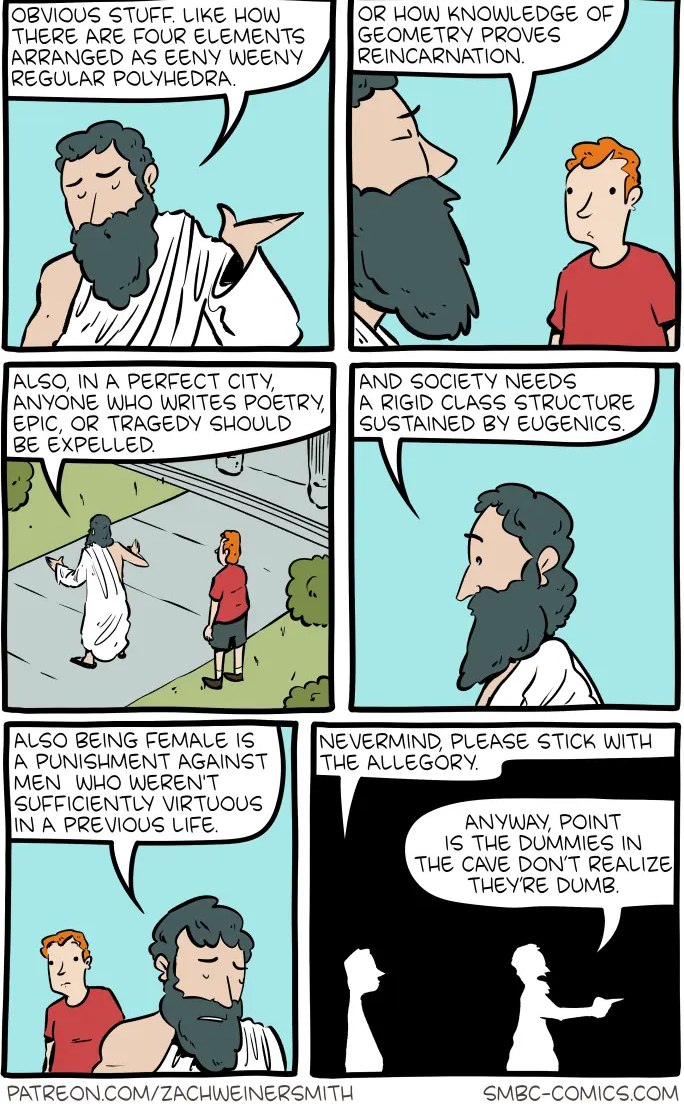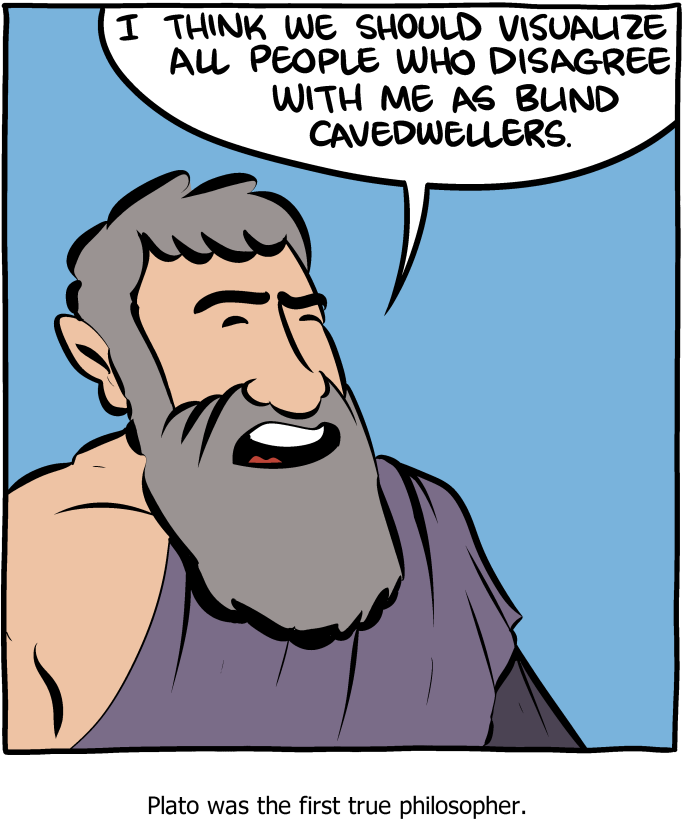Plato's cave
« previous post | next post »
The first two panels from SMBC a few days ago:
The rest of the strip:
The aftercomic:

The mouseover title: "Would you rather sit with friends watching shadows on the bigscreen or spending your time arguing with Plato about whether poetry should be legal?"
This expands on the 9/9/2015 SMBC:

Wikipedia explains the Allegory of the Cave, or you can read the original here.
Wikipedia's explanation of platonic reincarnation is here — and for its linguistic relevance, see here.



Barbara Phillips Long said,
June 13, 2025 @ 4:46 pm
It sounds like any arguments I would have with Plato would be futile against whatever mansplaining reasoning he presented, given that regardless of the merit of my arguments, they would be dismissed as coming from someone inferior. As I am not much interested in watching “the bigscreen,” I will just go back to reading.
Tangentially, I have wondered for years if human history would have been different if men had understood that sperm carried the genetic matter that determined whether the new baby would be labeled “male” or “female.”
The logic of some reincarnation scenarios puzzles me. What happens when the soul is slated to be reincarnated as a dodo, but there aren’t any dodos available because they’re extinct? Even in the ancient world, plants disappeared, waters were overfished, and species became extinct.
AntC said,
June 13, 2025 @ 9:09 pm
Why is it in Western Popular Culture that the only of Plato's works that get credited are the ones he's channeling Socrates?
Plato did write other stuff, you know. (Not that much of it reliably survived.) In which he more-or-less conceded that The Republic is a load of bollox. (@Barbara might find much common ground with Plato-qua-Plato.)
Rodger C said,
June 14, 2025 @ 11:48 am
When I taught the Parable of the Cave every year to my freshmen, I explained that Socrates was in a running feud with people who just taught rhetoric and argumentation to Get Ahead, and that it was about escaping those assumptions and discovering what thinking was really for, viz. the Big Things. It's a freshman take on the story, of course, but it was addressed to the reasons many of them had come to college, to say nothing of the assumptions of many freshman rhetoric textbooks.
Yerushalmi said,
June 15, 2025 @ 6:20 am
The dumbest thing about the Allegory of the Cave is that it is presented as a dialogue, but in practice only one speaker is making any points while the other one only says "You're right", "That cannot be denied", "That is unquestionably true", etc.
As an example of argumentation it is worth less than nothing. But damned if it doesn't provide a good thesaurus for aspiring sycophants.
Yves Rehbein said,
June 15, 2025 @ 6:43 am
The allegory reminds me of Searle's room argument. Imagine chatGPT was enslaved in a data center for so long it mistakes the shadows of Chinese texts, slipped under its door by an evil philosopher, for actual reality.
Rodger C said,
June 15, 2025 @ 9:54 am
Yerushalmi, I sometimes wonder what an afternoon with Socrates actually sounded like before Plato used him as a sock puppet. Probably a great deal more instructive from our viewpoint.
Yerushalmi said,
June 15, 2025 @ 10:27 am
@Rodger C
Or possibly he was even more of an idiot than Plato made him out to be :)
Kris said,
June 15, 2025 @ 10:56 am
@Barbara, obviously dodos became extinct because no more souls were slated to be reincarnated as them. Of all the hurdles to supporting the theory, that one seems easily jumped :)